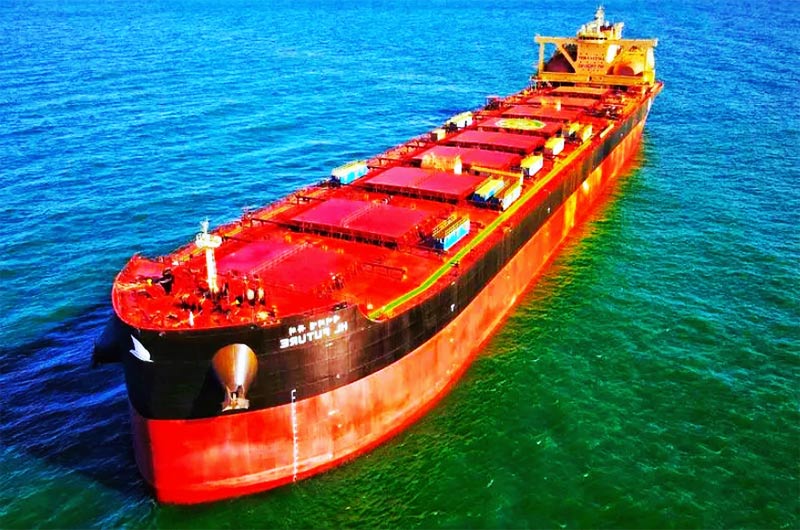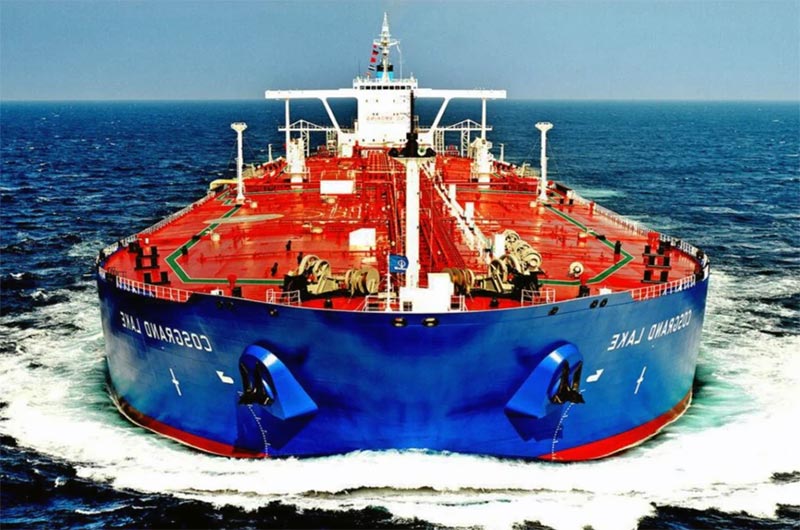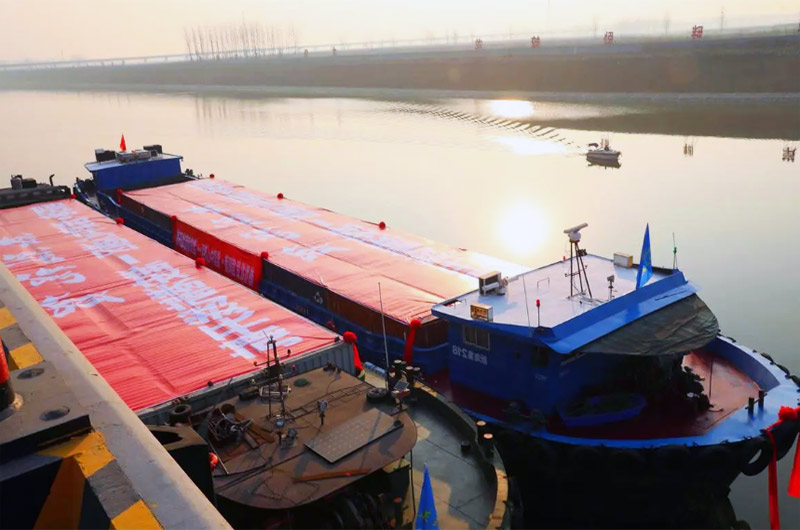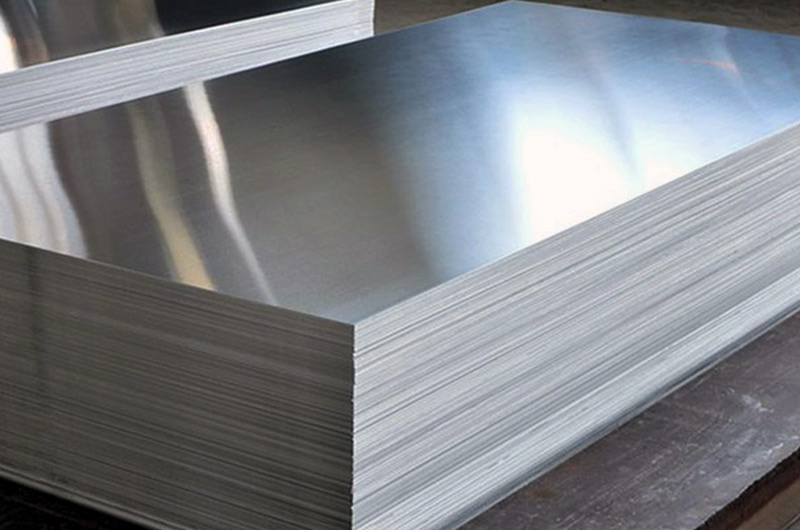The maritime industry is constantly evolving and one of the key drivers of innovation in cargo ship construction is the use of advanced aluminum alloys. Aluminum’s unique combination of properties, including high strength, weldability and corrosion resistance, makes it the material of choice for cargo ships of all types.
In this comprehensive blog we will explore the role of specific aluminum alloys in cargo ship innovation, focusing on bulk carriers, container ships and tankers. We’ll take a closer look at the properties of 5083, 5086, 5052, and 5454 aluminum alloys and how they contribute to the success of these containers.
Bulk Carriers and Container Ships
Bulk carriers and container ships are the mainstay of international trade. They transport a variety of dry bulk cargoes, from coal and ore to grain and containers filled with a variety of goods.
One of the distinguishing features of these ships is their reliance on high-strength aluminum alloys. Commonly used aluminum panels are:
5083 marine aluminum plate
5083 aluminum alloy is praised for its excellent weldability and corrosion resistance. Bulk carriers and container ships benefit from 5083’s ability to withstand the corrosive effects of salt water and its ease of welding. These properties make it ideal for shipbuilders looking to build ships that can handle the rigors of the sea.
5086 marine aluminum plate
5086 Aluminum is very similar to 5083, 5086 aluminum has high strength properties, excellent weldability and corrosion resistance. These attributes are invaluable for bulk carriers and container ships.
The weldability of 5086 ensures efficient construction, while its corrosion resistance minimizes maintenance requirements, thereby reducing downtime and operating costs.

Tankers
Oil tankers play a pivotal role in the global energy supply chain, transporting crude oil and refined petroleum products to meet the world's energy needs. These ships operate in particularly demanding environments where the integrity and safety of their cargo is of paramount importance.
To meet these challenges, tankers typically use the following aluminum panels:
5052 Aluminum Plate for Tankers
5454 Aluminum Plate for Tankers
5052 Aluminum Plate for Tankers
Tankers benefit from 5052 aluminum’s excellent corrosion resistance and weldability. The corrosion-resistant properties of 5052 aluminum ensure the integrity of the cargo, protecting it from corrosion by petroleum products. Its weldability enables efficient construction and maintenance.
5454 Aluminum Plate for Tankers
5454 aluminum has excellent corrosion resistance and is known for its suitability for welding. Tanker construction benefits from these properties as 5454 aluminum ensures cargo remains free from contamination and safe during transport. Its weldability simplifies construction, which is crucial in the shipbuilding industry.

Innovative Applications of Aluminum Alloys
The applications of these aluminum alloys in bulk carriers, container ships and tankers exceed their respective capabilities. Let’s explore how these alloys contribute to cargo ship innovation:
- Lightweight construction: Aluminum alloys significantly reduce the weight of cargo ships compared to traditional materials such as steel. This weight reduction improves fuel efficiency, increases cargo capacity and enhances overall performance.
- Corrosion Resistance: The corrosive effects of salt water on ship structures can be severe. Aluminum alloys such as 5083, 5086, 5052, and 5454 are naturally corrosion-resistant, reducing the need for extensive maintenance and extending the life of the vessel.
- Weldability: Aluminum alloys are easily weldable, speeding up the shipbuilding process and thus speeding up construction and repairs. This efficiency is especially valuable in industries that require just-in-time delivery.
- Design Flexibility: Aluminum’s formability and versatility provide ship designers with greater flexibility in shaping cargo ship components. The ability to create custom designs based on specific cargo and operational requirements is a significant advantage.
Solutions for Cargo Ship Construction
To illustrate the real-world impact of these aluminum alloys, several case solutions are shared:
Large Container Ship with 5083 and 5086 Aluminum
Customer requirements: high strength and corrosion resistance, ability to withstand cargo weight and salt water corrosion.
Solution: Choose to use 5083 and 5086 aluminum alloys.
5083 aluminum provides superior weldability for complex hull structures, while the corrosion resistance of 5086 ensures the long-term integrity of the vessel.
The lightweight properties of these alloys improve the fuel efficiency and overall performance of ships, making them a leader in the container shipping industry.

Crude Oil Tanker with 5052 and 5454 Aluminum
Transport large quantities of oil with the highest safety and cargo integrity, withstand the corrosive nature of the cargo, and operate efficiently in the challenging conditions of the high seas.
Solution: Choose 5052 and 5454 aluminum alloys. These alloys provide the optimal combination of corrosion resistance and weldability required for crude oil tankers.
5052 aluminum ensures cargo is protected from contamination, while the weldability of 5454 aluminum simplifies construction. The solution not only meets safety and performance expectations, but also reduces operating costs by reducing maintenance requirements.
Environmental and Economic Benefits
The advantages of using high-strength aluminum alloys in cargo ship construction extend beyond performance. They have a significant impact on environmental and economic factors:
- Reduced fuel consumption: The lightweight nature of aluminum alloys reduces fuel consumption, thereby reducing greenhouse gas emissions and lowering operating costs.
- Reduced Maintenance Costs: The corrosion-resistant properties of aluminum alloy reduce maintenance needs, minimizing downtime and repair costs.
- Sustainability: Aluminum is a recyclable material, making it an environmentally friendly choice. At the end of a cargo ship's service life, aluminum components can be recycled, contributing to the sustainable development of the maritime industry.
Conclusion
Aluminum alloys, including 5083, 5086, 5052 and 5454, have become key materials in cargo ship construction, driving innovation in the maritime industry. These alloys offer a unique combination of high strength, weldability and corrosion resistance, making them ideal for bulk carriers, container ships and tankers.
As cargo ships continue to evolve and demand greater efficiency and performance, aluminum alloys play a key role in meeting these challenges. Their lightweight construction, corrosion resistance and weldability contribute to safer, greener and more cost-effective cargo transportation.


